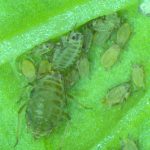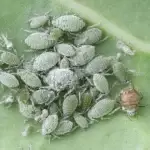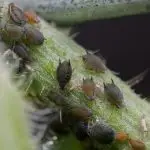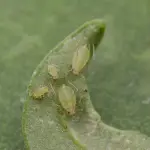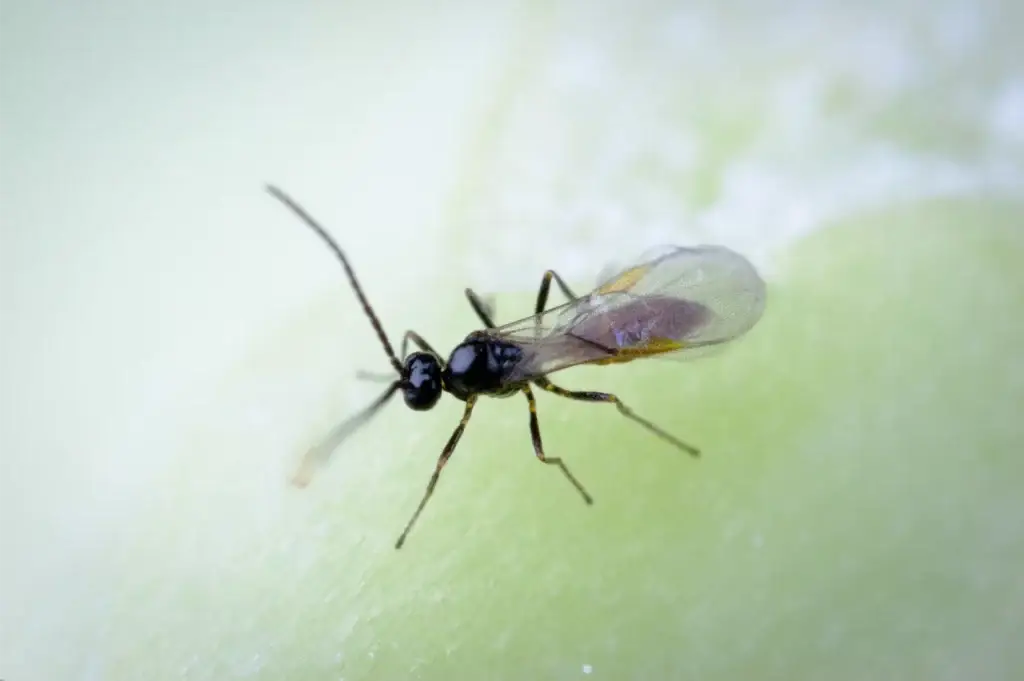Diaeretiella
Overview
Diaeretiella rapae (Diaeretiella) is a primary parasite of the key aphid pests of brassicas, making it the most important aphid parasite for these crops.
Diaeretiella are about 2-3mm long. Their head and thorax are black and their abdomen and legs are a yellowish brown.
Diaeretiella can be used to control aphids in all brassica crops including cabbage, broccoli, cauliflower, canola, radishes, Chinese Cabbage, and other Asian brassica greens. Their ability to control a range of aphid species also makes them useful in other crops such as corn, cotton, cereals and greenhouse vegetables.
They can be used in crops grown indoors and outdoors.
Pests Diaeretiella can help you control
You can use Diaeretiella rapae to control key brassica pests: Cabbage Aphid (Brevicoryne brassicae), Turnip Aphid (Lipaphis pseudobrassicae) and Green Peach Aphid (Myzus persicae).
Dieretiella can also help you control cereal aphids such as Corn-leaf Aphid, Russian Wheat Aphid, and other key aphid species including Cotton/Melon Aphid (Aphis gossypii).
How Diaeretiella controls pests among crops
Diaeretiella can effectively target aphids at all stages of their development. They deposit their eggs inside the aphid and hatch within 2 or 3 days. The larva feeds on the aphid from the inside, pupating within the aphid body (forming a ‘mummy’). A few days later it emerges as an adult wasp to continue the parasite life cycle.
Highly effective foragers, Diaeretiella can stop aphid colonies establishing and help prevent aphid outbreaks.
You will achieve the best results by introducing Diaeretiella when aphid pests are at low levels. You can maintain its population using shelter belts with a polyculture of plant species.
Certain pesticides and fungicides affect Diaeretiella so contact your local Biological Services Consultant for specific advice.
How you can order Diaeretiella
You can order Diaeretiella rapae from Biological Services in vials containing 500 aphid mummies/vial in the Aphid Parasite Mix.
Get tailored advice for your commercial crop
To speak with one of our qualified consultants about your current commercial crop challenge or to learn about the benefits of the IPM maintenance and monitoring services we provide, contact us.
